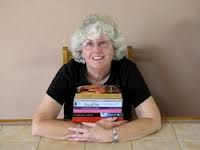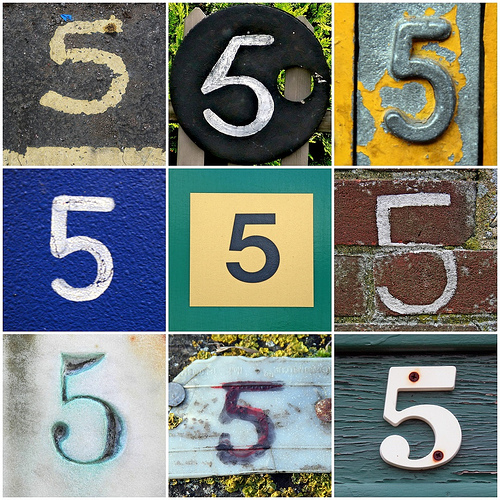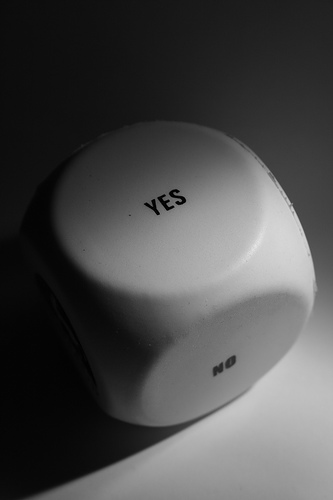Self-Published Authors Share 5 Things They Learned in 2012 ~ Part 3
Today’s guest post continues the 12-part series I’ve launched in this new year: asking self-published authors what are the top 5 things they’ve learned in the last year. Last year I featured numerous guest posts from indie authors who’d been successful, and I noted the diversity of reasons for their success—some completely in contradiction to another’s—so I thought it would be helpful to have more authors give their insights into the most valuable lessons they’ve learned. Hopefully it will help you navigate the convoluted and confusing maze of indie publishing and give you ideas on how best to spend your time so that it produces the results you desire in your writing career.
Today’s guest post is from Melissa Bowersock:
Thinking about self-publishing? The idea can be daunting, but it is nowhere near impossible. It’s being done all around the globe, more and more often, by more and more writers.
I kind of backed into self-publishing. My first five books were traditionally published, two by a New York house, three by small presses. When my first two books went out of print and the rights reverted back to me, I paid to have them published by iUniverse just to keep them active. Sometime later I began to hear about self-publishing and I realized that opened up a whole new ballgame. I have since self-published my last five books, and I absolutely love it!
No, It’s Not Easy
However, it is not easy. It takes a lot of work as you, the author, are now either doing or contracting the jobs of copy editor, formatter, cover designer, blurb-writer, and promotional packager. How much you do yourself, and how much (if any) you contract out is entirely up to you. There are no hard and fast rules about that, but there are plenty of pitfalls along the way. In the interest of easing the learning curve for up-and-coming authors, I’ve got a list of five lessons learned through my own experience with self-publishing.
Quality Matters
1. Be meticulous. As you start looking into self-publishing, you may run into some diatribes (mostly from publishing houses) about how self-published books are low quality, error-ridden tripe slapped together by people too lazy to pursue professional channels. There was a time in the distant past when that may have been true, when Uncle Frank paid through the nose for a vanity press to publish his 600-page grammatically-challenged book about his life as a beer-can collector.
That was then, this is now. Nowadays, all manner of authors are choosing self-publishing. The writing is top-notch, the books are quality and most people would be hard pressed to tell without looking whether a book came from an East Coast house or Create Space (Amazon’s self-publishing subsidy). But because of that legacy of unprofessionalism, today’s self-published author needs to be absolutely meticulous in his/her approach. It’s a little like the red-haired stepchild having to do everything twice as well in order to be thought half as good.
That means paying attention to those wavy red and green lines that appear in your Word document. That means remembering all your high school rules of grammar, punctuation, and word usage. That means reading and re-reading and re-reading again to catch the spelling errors, the missed commas, the unequal quotes. Blowing off the rules of writing shows a blatant disrespect for the reader and—worse—it’s the easiest way to lose the reader.
Nothing takes me out of a story faster than confusing punctuation or a misspelled word. If I have to go back and reread a sentence in order to understand it, I’m no longer in the story. The words on the page should be the effortless and almost transparent vehicle that carries the reader along; if the reader has to stop and fix a flat tire, he’s not going to be happy about that and he’s not going to be charitable about the rest of the book.
Get Some Valuable Feedback
2. Call for support. Whether you elect to hire editorial help or not, it’s a good idea to have others read your book and comment on it. Oh, sure, your mother will read it, and she’ll love it and not have a single bit of constructive criticism (“It’s lovely just the way it is, dear.”), but you need more than that. I try to get as broad a spectrum of readers as I can, both my writerly-type friends and my not-so-writerly reading friends. This way I can get both levels of feedback, from the “you’re mixing your metaphors” comments to the “describe your character more” comments.
If you do hire a professional editor, you will likely get a third level of feedback that can be both helpful and insightful. However, I advise a bit of caution here. Never forget that you are the authority on your book, no one else. Even a hired professional editor may have ideas about your book that just don’t fit. I had one editor make suggestions about my character that I thought seriously about but had to reject; the suggestions were things my character would not have done. Your ultimate guideline for the book is staying true to your characters and telling their story in the best way you can.
Help Is Out There
3. Don’t reinvent the wheel. What’s great about the industry right now is that there are lots of great writer’s support networks online. Join Goodreads.com and LinkedIn.com, and start following and interacting in the various forums there. There’s a great group called WANA (We Are Not Alone) where other writers offer their help and support. (This group is by invitation, easily arranged.) Read blogs by other writers; many of us are happy to share our experiences. If we can save you from some of the pitfalls, we will. The indie writer community is happily turning from competition to cooperation. And if you don’t see a particular issue addressed, ask. You do not need to suffer in silence or work out the bugs alone. Pioneers have already done that, and you can benefit from their experience.
Do Your Homework
4. Don’t be fooled by vanity presses. Vanity presses (pay-to-publish) are not the same as self-publishers. If you’re new to publishing and you come across a deal that you’re not sure about, check out Predators and Editors. If there’s anything about the offer that doesn’t sound right, Google it or go into the online forums and ask about it. You could save yourself a whole bunch of pain and frustration.
Be Discoverable
5. Get the word out. The last piece of the puzzle that you’ll need to address is marketing. Make yourself—and your book—visible. In this day and age, you do that by increasing your online presence. Start a web page (for you, not your book; you’re going to write more masterpieces, right?), start a blog, be active on social media and online forums. There is an excellent book on this called We Are Not Alone by Kristen Lamb. She does a great job of breaking down all these tools, guiding you step-by-step as you create and grow your web page, your blog, your Facebook page(s), your Twitter account. It’s better to read this book or one like it sooner rather than later to save yourself a few missteps.
That said, don’t worry if you’ve jumped the gun and made a few mistakes. We all do. But that’s a good thing; we grow from our mistakes. Just keep moving forward.
 Melissa Bowersock is an eclectic writer who turns her hand to any kind of story that moves her: contemporary, Western, fantasy, romance, action/adventure, spiritual. She thrives in the Sonoran desert of Southern Arizona with her husband and an Airedale terrier. She is also a certified hypnotherapist. You can buy her book Marcia Gates: Angel of Bataan here and her novel Queen’s Gold here. You can also visit Melissa at her website here.
Melissa Bowersock is an eclectic writer who turns her hand to any kind of story that moves her: contemporary, Western, fantasy, romance, action/adventure, spiritual. She thrives in the Sonoran desert of Southern Arizona with her husband and an Airedale terrier. She is also a certified hypnotherapist. You can buy her book Marcia Gates: Angel of Bataan here and her novel Queen’s Gold here. You can also visit Melissa at her website here.












Thanks much for the opportunity to share my experience with up-and-comers. Hope it’s helpful. Indie writers are a wonderful, cooperative community, and we’re becoming more powerful by the day!
Melissa, you hit right on the quandary which is mine right now, today. Self-publish or keep trying to sneak under the door of traditional publishing. A related question is how to find an amazing editor? How do I know that they are not just predators lurking out there ready to steal my gold? (both ms and $$) I have hired a cover designer, met her face-to-face, and loved her work. That is all good. Also have a printer in mind whom I met and whose references are excellent. And then two days ago I had a bite from an agent who suggests an excellent editor to elevate the writing from very good to amazing.
I love the idea of controlling my project but those old stories of self-pubbed books keep lurking. Any thoughts?
Elaine, yes, that’s a quandary–go on your own or look for outside help? I have blogged before on the fact that we writers tend to be insecure because our work is so subjective and there is no absolute barometer to tell us whether it is good or excellent or less than. Unfortunately, because of that, we tend to be easy prey for the money-grubbing sharks out there. I have reached the point that I feel secure enough (naive enough?) to go with my own editing, but if you want to check out this other, I would suggest getting more input. Is the agent agreeing to represent you? IF you use the editing? (Might be a kick-back going on there!) Have you been able to get references for the editor from others? Have you seen samples of his/her work, the before and after editing? And finally, what kind of cost is it? This kind of work can be very expensive with, of course, no guarantees. I would certainly ask a lot of blunt questions, and don’t be fooled by flattery. Google the editor and see if you find any references, discussions, complaints online. Are you a member of WANA? If not, I can send you an invite and we have a Resource section where writers are offering recommendations for editors.
Great stuff. I’m at the proofreading stage. I was a proofreader, but I do think I will probably need another pair of eyes. We do miss things! Thanks again, Beth
Beth, the bane of my existence! I blogged a while back about typos and the sneaky way our brains and fingers work against us. Can’t believe how hard it is to see all the little buggers,and I STILL think they run around inside a published book, have illicit relationships and co-create after the fact! Yes, definitely, borrow another set of eyes, more than one if you can. I’ve heard from other writers who say to read the MS backward one sentence at a time. Haven’t tried it, but it might break the brain’s insistence on showing us what it thinks we want to see. Good luck!
LOL! I so agree about those sneaky little typos!
Thanks for the great post Melissa and C.S. for arranging this post. I think as an indie author, writers have the most difficult time with social media and it’s a place where we all need growth. I have read Kristen Lamb’s book “We Are Not Alone” it’s a good book one for the shelf that you keep going back to re-read again.
Susan, glad the post was affirming. I’m currently reading Kristen’s book about blogging and I’m learning a lot. I’d be happy to extend an invite to the WANA group if you’d care to join. It’s a great resource.
Beth, it’s a good idea to have it proofread the second time. I am also a proofreader and I do proof1, proof2 and quality check. Just to make sure.
Melissa, your thoughts on self-publishing are really enriching.
Thanks much; can you tell I love it?